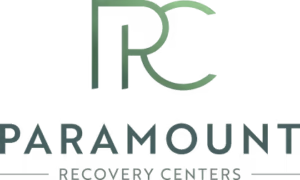Possible Withdrawal Symptoms During Alcohol and Drug Detox
Understanding the withdrawal symptoms associated with drug and alcohol detox is essential for those embarking on the path to recovery. Symptoms can vary widely based on the substance used, the duration of use, and the individual’s overall health. Below are some common withdrawal symptoms categorized by substance type:
Alcohol Withdrawal
- Mild Symptoms: Anxiety, insomnia, nausea, and tremors
- Severe Symptoms: Hallucinations, seizures, and delirium tremens (DTs), which can be life-threatening and require immediate medical attention
Opioid Withdrawal
- Early Symptoms: Agitation, muscle aches, insomnia, and sweating
- Late Symptoms: Abdominal cramping, diarrhea, dilated pupils, goosebumps, and nausea
Stimulant Withdrawal
- Psychological Symptoms: Fatigue, depression, suicidal thoughts, and intense drug cravings
- Physical Symptoms: Increased appetite, sleep disturbances, and slowed thoughts or movements
Benzodiazepine Withdrawal
- Acute Symptoms: Anxiety, irritability, lightheadedness, muscle pain, and restlessness
- Severe Symptoms: Seizures, psychosis, and severe panic attacks
Cannabis Withdrawal
- Common Symptoms: Irritability, mood swings, sleep difficulties, decreased appetite, and cravings
- Physical Symptoms: Headaches, night sweats, and flu-like symptoms
The severity and duration of these symptoms can vary widely from person to person and depend on various factors. The medical supervision and support provided during drug detox at a New England recovery center can help manage these symptoms and ensure the safety and well-being of individuals undergoing the process.
What Happens During Detox Massachusetts?
When undergoing drug or alcohol detox in a Massachusetts rehab center, individuals will typically go through several stages, including:
Initial Assessment
Upon arrival at a detox center in Massachusetts, the first step involves a comprehensive initial assessment. Medical professionals will perform a medical evaluation to determine the individual’s physical and psychological state, substance use history, and any co-occurring conditions. This thorough assessment helps create an individualized treatment plan that addresses the client’s specific needs and support services.
Stabilization through Medication Management
The stabilization phase is crucial for managing withdrawal symptoms and ensuring patient safety. During this period, medical staff administer appropriate medications to alleviate severe symptoms and prevent complications. For instance, methadone or buprenorphine may be used for addiction to some prescription drugs and heroin, while benzodiazepines might be employed for alcohol abuse.
Continuous monitoring by healthcare professionals is essential to quickly address any emerging issues and adjust addiction treatment protocols as needed.
Supervision and Monitoring
Throughout detox at rehab facilities, patients receive continuous medical monitoring to ensure their safety and well-being. Vital signs and withdrawal symptoms are regularly checked, and medical staff remain nearby to provide immediate care if necessary. This medical supervision is essential in managing the detoxification process safely.
Nutritional Support
Proper nutrition and hydration are integral to the detox process. Detox centers in Massachusetts ensure that patients receive balanced meals and adequate fluids to support their body’s recovery. Nutritional support helps maintain strength, improve overall health, and aid detoxification.
Psychological Support
Detoxification is not only a physical process but also an emotional and psychological journey. Therapy and counseling are provided to help individuals cope with the mental and emotional challenges of withdrawal. Psychological support can include individual therapy, group sessions, family therapy sessions, family services, and behavioral therapies.
Detox centers in Massachusetts provide a safe and supportive environment for individuals to begin their journey toward recovery and sobriety.
Request a 100% Confidential Callback
If you or a loved one are struggling with substance abuse and mental health problems, contact our drug and alcohol rehab center in the Greater Boston area to talk confidentially with an addiction specialist. For immediate help, call (978) 878-3677 or fill out the form below, and we will get back to you as soon as possible.
"*" indicates required fields
How Long is Detox Massachusetts?
The duration of a Massachusetts detox program can vary significantly depending on several factors, including the type of substance involved, the severity of the addiction, and the individual’s overall health. Generally, detox in alcohol and drug rehab centers can last anywhere from a few days to two weeks. For substances like alcohol and opioids, detox typically spans five to seven days. However, some individuals may require a more extended period to manage withdrawal symptoms safely and effectively.
The duration of detox will be determined by healthcare professionals at the drug and alcohol rehab facility in Massachusetts based on individual needs and progress throughout the detox process.
How Do I Know if I Need Drug and Alcohol Detox Massachusetts?
Determining whether you need drug and alcohol detox in Massachusetts for substance addiction is best done through a professional assessment by a healthcare provider or addiction specialist. However, some signs that indicate the need for detox include the following:
- Physical Dependence: Developing a tolerance and experiencing withdrawal symptoms when not using
- Loss of Control: An inability to stop or reduce substance use despite efforts and intentions to do so
- Health Issues: Suffering from physical or mental health problems directly related to substance use, such as liver damage, cognitive impairments, or mood disorders
- Impact on Daily Life: Substance use significantly interferes with personal, professional, or social responsibilities and relationships
- Unsuccessful Attempts to Quit: Multiple attempts to quit or reduce usage have been unsuccessful, leading to a sense of hopelessness or despair
- Risky Behavior: Engaging in dangerous activities while under the influence, such as driving or operating machinery
If you or a loved one are experiencing any of these signs, it is crucial to seek professional help from a drug and alcohol addiction treatment center in Massachusetts to determine the appropriate level of care, which may include detoxification at a drug and alcohol rehab facility.
What Happens After Drug and Alcohol Detox in Massachusetts?
While drug and alcohol detox is crucial for addressing the physical dependency associated with drug abuse, it is not an all-encompassing solution. Comprehensive substance abuse treatment typically follows detox and includes a range of addiction treatment options designed to tackle the psychological and behavioral dimensions of addiction. Rehab programs at a recovery center commonly offer counseling, behavioral therapy, and support groups, which are instrumental in fostering long-term recovery and addressing any underlying mental health issues.
After successfully completing a drug and alcohol detox in Massachusetts, our team will determine the next form of addiction treatment to help build a solid foundation for long-term recovery. Here are some of the next steps:
Inpatient Rehab
An inpatient treatment program involves staying at a residential treatment facility where individuals receive intensive therapy and support. This inpatient setting provides a structured environment free of external triggers and stressors, enhancing focus on recovery. Patients benefit from 24/7 medical supervision, individual and group therapy, and holistic treatments.
Outpatient Rehab
Outpatient treatment at a Massachusetts drug rehab allows individuals to live at home while attending treatment sessions at a drug and alcohol rehab facility. This option offers greater flexibility and is suitable for those with mild to moderate substance use disorders. Outpatient programs typically include counseling, educational sessions about alcohol and drug addiction recovery, and group support. Outpatient treatment options generally include partial hospitalization, intensive outpatient programs, or general outpatient.
Dual Diagnosis Treatment
Dual diagnosis treatment addresses individuals who are dealing with both substance use disorders and co-occurring mental health conditions. This approach is essential for a comprehensive recovery, as it simultaneously treats addiction and underlying psychological issues like depression, anxiety, or trauma.
Ultimately, an addiction specialist will help you determine what type of drug and alcohol rehab program you need after detox.
Medication-Assisted Treatment Services (MAT)
Many facilities, including addiction treatment facilities that Paramount Recovery Centers partner with, incorporate MAT during medical detox at a drug or alcohol rehab center, which involves the use of medications to alleviate withdrawal symptoms and reduce cravings. These medications can help manage symptoms such as nausea, insomnia, anxiety, muscle aches, and drug cravings. The specific medications used depend on the drug of abuse and individual needs. This approach is often used to help individuals with severe addictions and those who are at risk of relapse.
Get Answers to Your Questions Now
How Much Does a Drug and Alcohol Detox in Massachusetts Cost?
The cost of drug and alcohol detox in Massachusetts at addiction treatment centers can vary significantly across Massachusetts rehab centers depending on several factors.
Health insurance coverage, the presence of mental health disorders, and whether an individual requires inpatient or outpatient detox can influence the overall cost of treatment for addiction recovery. Many facilities offer payment plans or sliding scale fees to accommodate different financial situations, ensuring that individuals have access to the care they need.
Some inpatient rehab centers may incorporate the cost of detox into their overall program pricing for drug and alcohol treatment.
Drug and Alcohol Rehab at Our Addiction Treatment Centers
If you need help from an addiction treatment center in Massachusetts, we are here for you. We are dedicated to finding suitable addiction treatment programs for those struggling with substance abuse. We also recognize the challenges of seeking drug addiction treatment and mental health services under financial constraints and will help you determine if drug and alcohol rehab and detox are covered by insurance. If you have any questions, please don’t hesitate to contact us by calling (888) 508-3010 or filling out our online form.



